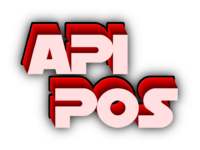
HCL DevOps Enhances Development Processes with a Platform-Centric Strategy
HCL DevOps Enhances Development Processes with a Platform-Centric Strategy
Platform engineering is gaining significant traction in the tech industry, largely due to its ability to enhance development team efficiency. Many see it as a natural evolution of DevOps, making the transition culturally smoother for organizations.
Jonathan Harding, Senior Product Manager for Value Stream Management at HCL Software, notes that as organizations strive for greater productivity, platform engineering has become popular for its ability to rapidly onboard new employees and empower existing staff to work more independently.
Platform engineering teams create an Internal Developer Portal (IDP), a self-service platform that streamlines tasks for developers. This allows them to provision infrastructure directly through the IDP rather than relying on IT support, thus speeding up their workflow.
Chris Haggan, Head of HCL DevOps at HCL Software, describes the IDP as a technical manifestation of DevOps goals. He explains that while DevOps emphasizes collaboration and agile thinking, platform engineering implements tools like HCL DevOps to facilitate effective technical delivery.
Haggan emphasizes the need for a coherent strategy that incorporates various DevOps elements to achieve holistic objectives. “My goal is to transform a customer’s idea from conception to production as swiftly as possible,” he said. “This involves refining processes, methodologies, and technical platforms that support quick delivery through the development lifecycle.”
IDPs typically encompass various functionalities and toolchains, acting as a comprehensive resource for developers. With HCL DevOps, teams can utilize a ready-to-use, customizable package, eliminating the need to build their own IDP from scratch.
Haggan points out that establishing and maintaining a platform engineering system can be costly, as it involves integrating multiple software delivery systems and managing metrics, software development lifecycle (SDLC) events, and data storage, often requiring a new database setup.
Additionally, teams may design their systems to reflect unique cultural nuances, which can be beneficial but may also result in “cultural debt” that hinders progress, as Haggan notes.
HCL DevOps offers a suite of robust solutions, including:
- HCL DevOps Test: An automated platform for UI, API, and performance testing, equipped with features for virtual services and test data generation.
- HCL DevOps Deploy: A comprehensive CI/CD solution that accommodates various architectures, including mobile, mainframe, microservices, and distributed multi-tier systems.
- HCL DevOps Velocity: A value stream management tool that aggregates data from the SDLC to provide insightful analytics for development teams.
Haggan acknowledges that organizations will likely seek to customize and expand their capabilities beyond HCL’s offerings. He emphasizes that HCL DevOps serves as a foundational platform that customers can build upon.
“We aim to be highly adaptable and enable customers to leverage their existing tools,” Haggan explained. “We recognize that organizations have their own workflows, and we intend to integrate with those.”
To support this integration, HCL offers a wide range of plugins—approximately 200 for HCL DevOps Deploy—allowing customers to create custom solutions as well. The plugin catalog is maintained by the HCL DevOps technical team and includes community contributions via GitHub.
Reducing Context Switching Disruptions
One of the significant advantages of IDPs is their ability to minimize context switching, which occurs when developers must switch between different applications for various tasks, disrupting their focus.
“Distractions can be incredibly costly for knowledge workers in large enterprises,” Harding noted. “Maintaining focus is crucial, and our platform engineering approach allows developers to concentrate on their tasks more effectively.”
Haggan added that while context switching is inevitable, making transitions smoother and more intuitive is key. “We aim to simplify the process of moving from planning to deploying or testing, so it feels seamless,” he said.
Harding mentioned that HCL has focused on making navigation across the platform effortless, ensuring users feel as if they are interacting with a cohesive solution.
The HCL DevOps team has developed the platform with user personas in mind, considering the various tasks specific roles might need to perform throughout the day. For example, a quality engineer using a test-driven development approach may need to switch between writing acceptance criteria, reviewing automated test results, and managing test scripts.
These tasks often involve multiple systems, each with distinct role-based access controls, tracking metrics, and user interfaces, which can complicate workflows. Haggan explained, “We strive to create a more integrated experience across the platform.”
“We focus on tightening integration based on the end user’s perspective and their objectives,” Harding concluded.
To discover how HCL DevOps can help meet your platform goals and enhance the productivity of your development team, visit their website to schedule a demo and explore the platform’s numerous capabilities.

